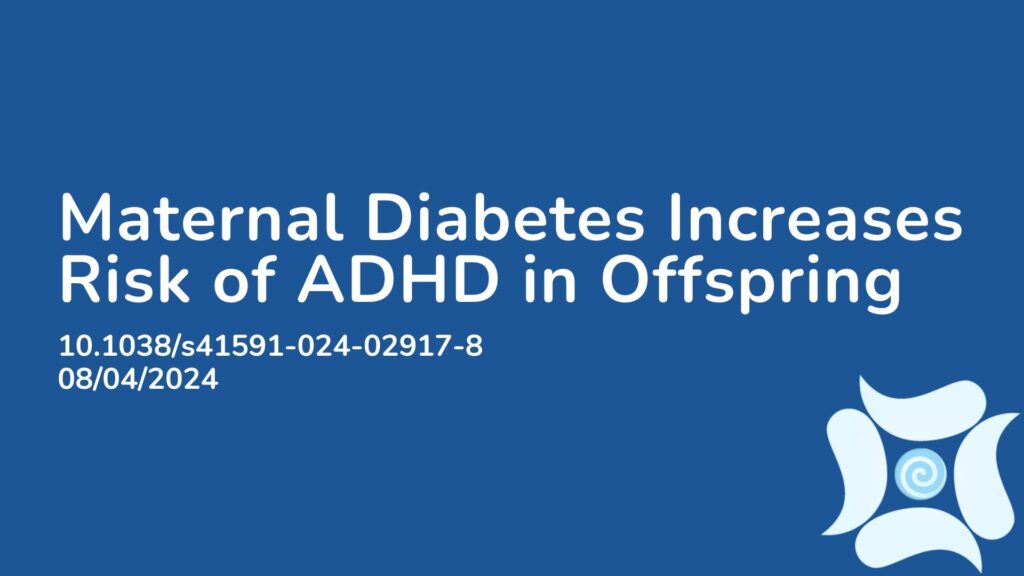Summary:
Global hyperglycemia rates in pregnant women, often tied to gestational diabetes mellitus (GDM) have surged to around 16%. The rising prevalence of gestational and type 2 diabetes raises concerns about associated pregnancy risks such as impacting offspring neuro-development through inflammatory responses, oxidative stress, and epigenetic changes. Attention-deficit/hyperactivity disorder (ADHD) affects 2-7% of children worldwide, imposing a significant societal burden due to its complex causes involving genetics, environment, and psycho-social factors. Recent research links maternal diabetes, both pre-gestational and gestational, to ADHD in offspring, with previous meta-analyses indicating a 40% increased risk. However, limitations in earlier studies such as reliance on self-reported data and insufficient confounder adjustments, mean this topic needs further investigation. This cohort study involving over 3.6 million mother-child pairs across multiple countries aimed to fill these gaps by exploring the association between maternal diabetes and ADHD risk in offspring. From the period of 2001 to 2014, the researchers revealed that children born to mothers with any form of diabetes (gestational and pre-gestational) during pregnancy had a heightened risk of ADHD compared to unexposed children. This emphasizes the need to reassess the precise roles of hyperglycemia and genetic factors in the material diabetes and ADHD relationship.
Abstract:
Previous studies report an association between maternal diabetes mellitus (MDM) and attention-deficit/hyperactivity disorder (ADHD), often overlooking unmeasured confounders such as shared genetics and environmental factors. We therefore conducted a multinational cohort study with linked mother–child pairs data in Hong Kong, New Zealand, Taiwan, Finland, Iceland, Norway and Sweden to evaluate associations between different MDM (any MDM, gestational diabetes mellitus (GDM) and pregestational diabetes mellitus (PGDM)) and ADHD using Cox proportional hazards regression. We included over 3.6 million mother–child pairs between 2001 and 2014 with follow-up until 2020. Children who were born to mothers with any type of diabetes during pregnancy had a higher risk of ADHD than unexposed children (pooled hazard ratio (HR) = 1.16, 95% confidence interval (CI) = 1.08-1.24). Higher risks of ADHD were also observed for both GDM (pooled HR = 1.10, 95% CI = 1.04-1.17) and PGDM (pooled HR = 1.39, 95% CI = 1.25-1.55). However, siblings with discordant exposure to GDM in pregnancy had similar risks of ADHD (pooled HR = 1.05, 95% CI = 0.94-1.17), suggesting potential confounding by unmeasured, shared familial factors. Our findings indicate that there is a small-to-moderate association between MDM and ADHD, whereas the association between GDM and ADHD is unlikely to be causal. This finding contrast with previous studies, which reported substantially higher risk estimates, and underscores the need to reevaluate the precise roles of hyperglycemia and genetic factors in the relationship between MDM and ADHD.
Article Publication Date: 08/04/2024
DOI: 10.1038/s41591-024-02917-8




